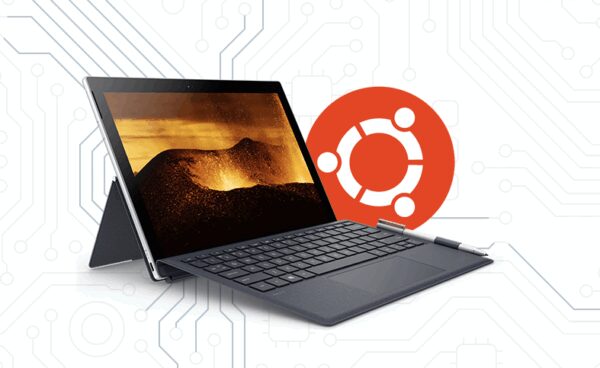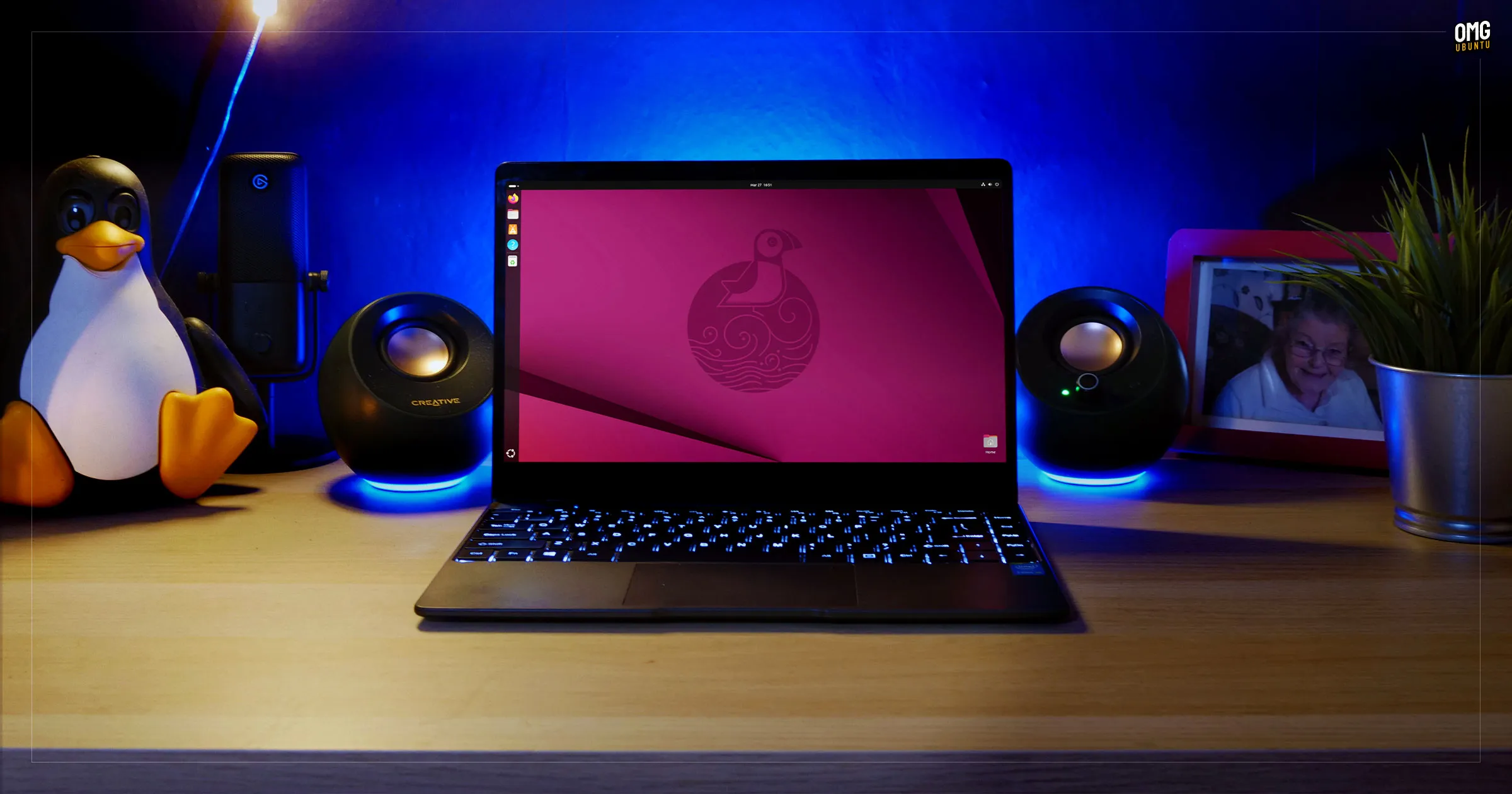Let me be upfront: I’m not abandoning Windows 11. I’m not walking away from macOS. Both platforms remain essential in my ecosystem—whether it’s enterprise software, creative workflows, or specific tools I rely on. But after installing Ubuntu 25.04 on a Surface Pro 7, something shifted. This wasn’t just a curiosity or side project. Ubuntu proved itself as a legitimate, modern operating system that works—cleanly, securely, and without noise.

Ubuntu on the Surface Pro 7
What’s changed in recent years is that Linux—specifically Ubuntu—now runs really well on Surface hardware, thanks to strong community support. The Surface Linux Kernel project makes it painless to get things like the touchscreen, power management, and other hardware features working smoothly.
After installing Ubuntu 25.04 and following the straightforward instructions to apply the custom kernel and drivers, the Surface Pro 7 became fully functional. The touchscreen works exactly as you'd expect—tap, scroll, swipe, pinch-to-zoom—all responsive and precise. There’s no tweaking or hacking involved. It’s as close to native functionality as Linux has ever gotten on Surface hardware.
Wi-Fi, Bluetooth, audio, and the keyboard cover all work out of the box. Boot time is quick, performance is snappy, and the desktop experience is clean and modern. Ubuntu 25.04 feels natural on this device, which says a lot given the Surface’s originally narrow Windows-first design.
The only missing component is the camera. Microsoft’s proprietary camera hardware remains unsupported on Linux, with no official drivers available. While some community patches exist, they’re inconsistent and not production-ready. For me, that’s a non-issue—I rarely use the camera on this device. If I need to, I can plug in an external webcam and move on. But it’s something organizations should be aware of before deploying broadly.
Why I’m Using Ubuntu Now
This isn’t about frustration with other platforms. It’s about recognizing how people—myself included—actually work in 2025.
I use Microsoft 365 Online daily, along with Google Workspace. My communication, documents, spreadsheets, scheduling, project management—it all happens in the browser. I’m not installing bloated software stacks or running legacy applications on this machine. I’m accessing the cloud, quickly and securely.
And when that’s your workflow, you start to realize the operating system doesn’t need to be overloaded with features or bound to an app store. It just needs to get out of your way. Ubuntu 25.04 does exactly that.
How I Use Ubuntu 25.04 Day-to-Day
On this Surface Pro 7, Ubuntu has become a highly capable productivity machine.
I use it for writing, meetings, messaging, and coordinating projects. LibreOffice handles my local documents when needed, and everything else lives in Microsoft 365 or Google Docs. File compatibility has been a non-issue.
For communication, I run Discord and Signal natively on Linux—both are reliable and fast. These are important for staying connected to a few key people. I occasionally use Slack, though more often I rely on Google Spaces in Chat, which has become my preferred environment for team-based projects. Zoom and Microsoft Teams run in the browser just fine, and I've joined and hosted meetings without any compatibility hiccups.
Ubuntu doesn’t slow me down. It boots fast, runs cool, and gives me a clean workspace without the distractions of update popups, trialware prompts, or background clutter.
LibreOffice: It’s More Than Good Enough
I gave LibreOffice an honest try. And honestly? It’s more than enough for most people.
It doesn’t look like Microsoft Word, but it doesn’t need to. It opens quickly. It saves and exports properly. It handles formatting reliably. I’ve written internal documentation, reviewed spreadsheets, and put together presentations—all without running into any roadblocks.
The truth is, 98% of users could do their job using LibreOffice and never notice the difference. And if you absolutely need Office, Microsoft 365 runs beautifully in the browser. I use both, and I haven’t missed a beat.
Where Ubuntu Belongs
Ubuntu isn’t just for techies anymore. It has found its way into real-world environments where it makes sense to use a secure, cloud-first OS that doesn’t come with all the baggage.
In K–12 schools, Ubuntu is ideal for repurposing aging devices. If students are working in Google Classroom or Microsoft Teams, they don’t need a full Windows install. Ubuntu gives schools a way to extend hardware lifespans and cut licensing costs without compromising capability.
In higher education, Ubuntu works in faculty offices, student labs, cybersecurity programs, and administrative support roles. If your tools are browser-based—and they usually are—Ubuntu is a cost-effective, reliable option.
In business, Ubuntu fits for field teams, shared workstations, kiosks, and cloud-first roles. Whether your employees are working in Salesforce, Slack, Google Workspace, or Microsoft 365, Ubuntu provides a lightweight and secure platform that doesn’t bog down or interrupt.
From a cybersecurity and governance standpoint, it’s a clean operating system with a smaller attack surface, no telemetry bloat, and less overhead. It’s easier to lock down, easier to baseline, and easier to manage securely than either of the mainstream OSes.
The Bottom Line: Ubuntu Continues to Prove Itself
This isn’t about making a switch. It’s about being honest about where Ubuntu fits—and the truth is, it continues to prove itself across the board. It’s fast, it’s secure, and it removes the friction that so often clutters modern computing.
Ubuntu isn’t just for the tech enthusiast or the sysadmin anymore. It’s for the student working in Google Docs, the teacher managing virtual classrooms, the developer pushing to GitHub, the business user in a CRM dashboard, and yes—even for someone like me, using it daily for communication, cloud productivity, and writing.
It doesn't need to impress with themes or clever terminal tricks. I don’t care about how much I can customize it. That’s not the point. The point is that it works. Consistently. Quietly. And with purpose.
Ubuntu has earned a permanent role in how I work. Not because it's trendy or alternative—but because it's ready.
And that, to me, is the strongest case any operating system can make.



